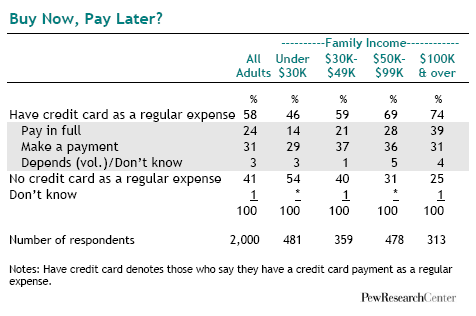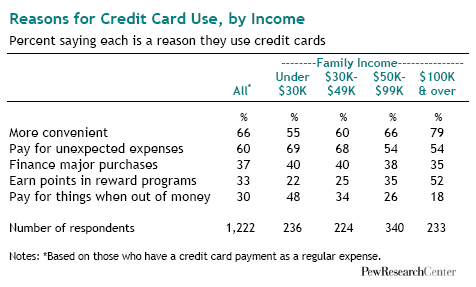Nearly six-in-ten (58%) adults report having a credit card bill as part of their regular line-up of expenses while 41% do not.

About three-in-ten (31%) Americans say they generally make a payment on their credit card bills each month, while 24% generally pay off the balance in full.
These patterns vary by income. Those with lower family incomes (under $30,000 annually) are less likely than those with higher incomes to have a credit card as a regular household expense. Among those who do have a credit card as a regular expense, those with higher family incomes are more likely than those with lower incomes to report paying the bill in full each month.
Americans have other consumer debt not reflected in their credit card payments. About one-in-ten (12%) adults say they have a store payment plan for home furnishings or electronics as one of their household’s regular expenses.
Convenience (66%) and short-term financing (60%) are the most common reasons people give for using credit cards. Other reasons (in response to a set of five questions) include financing major purchases (37%), the perks of credit card reward programs (33%) and paying for things when they run out of funds at the end of a pay period (30%).

Those with annual incomes of at least $100,000 are more likely than other income groups to say the convenience of cards and the reward points are reasons they use credit cards for some of their purchases. Not surprisingly, those with family incomes under $30,000 annually are more likely to report using credit cards when they run out of money at the end of a pay period.


